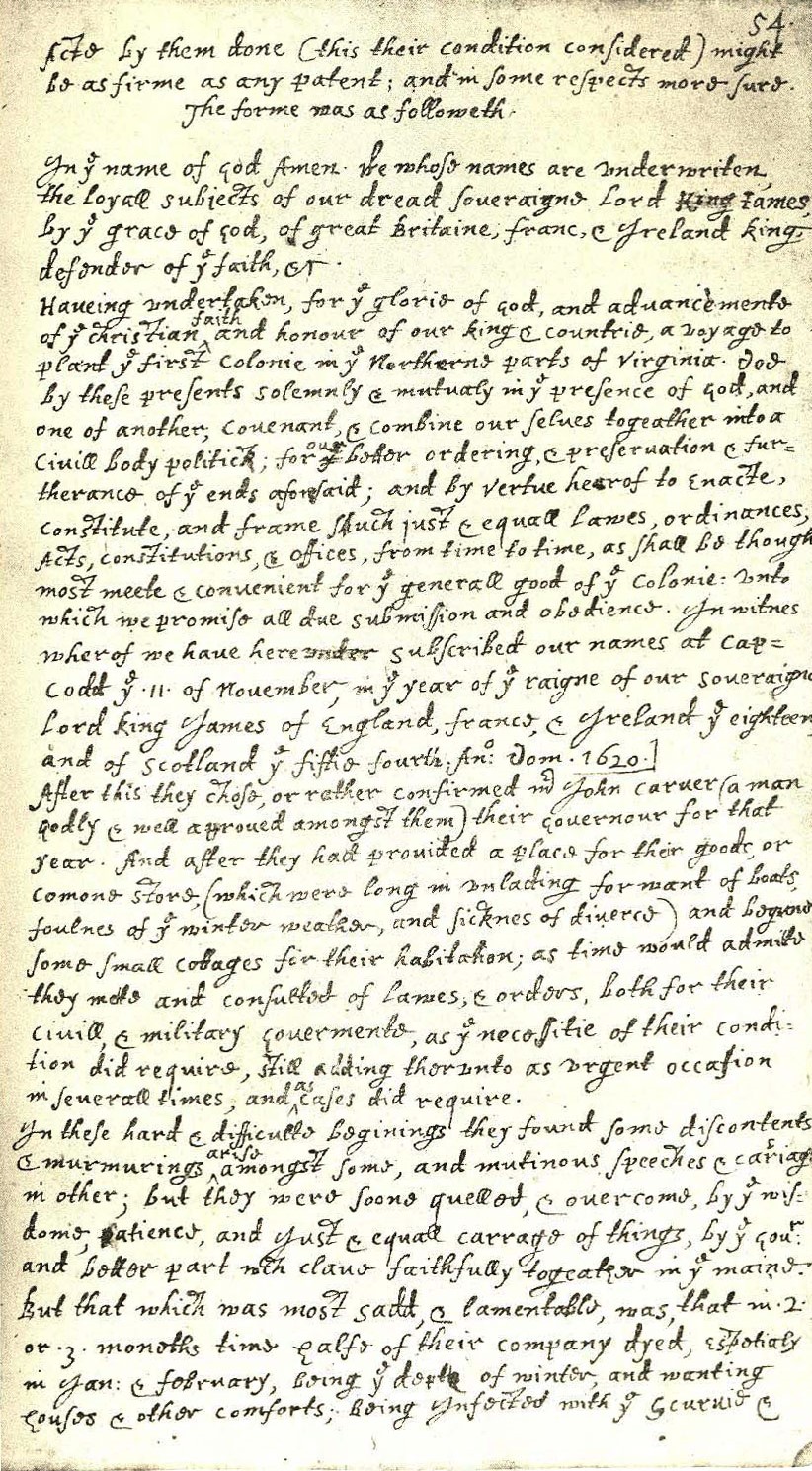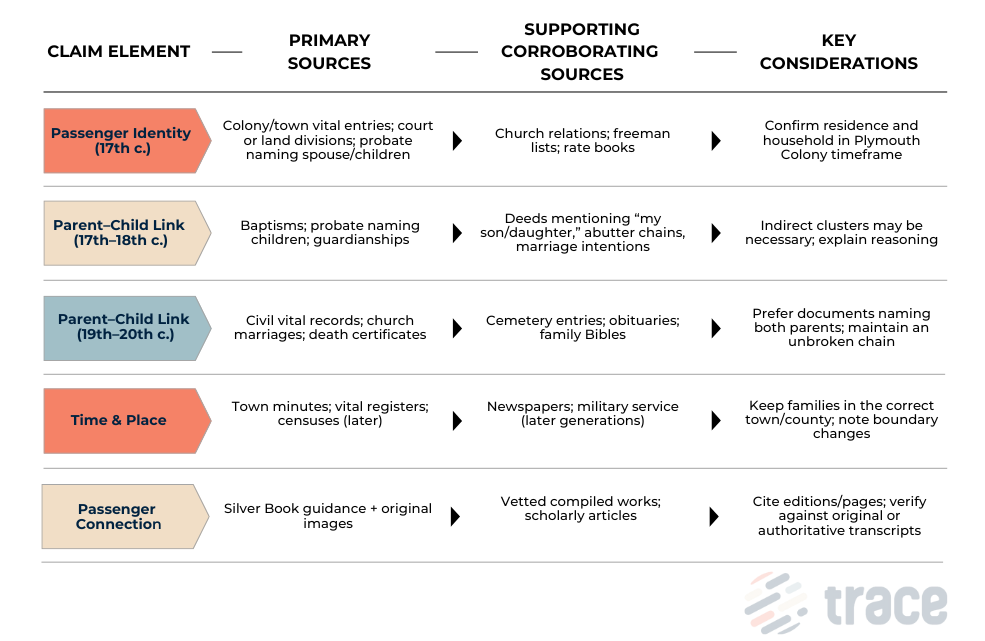
Bring your Pilgrim story into clear focus. If family tradition points to a Mayflower ancestor, Trace will authenticate each generational link from you back to a 1620 passenger and assemble a submission that aligns with the General Society of Mayflower Descendants (GSMD) standards.
Our professional genealogists compile your lineage documentation in the format expected by the Mayflower Society. This ensures your application is clear, credible, and aligned with society standards.
Membership requires proof of direct lineal descent from one of the passengers who traveled to America on the Mayflower in 1620. Every parent–child link from the passenger forward to the applicant must be supported by acceptable documentation.
Important: Requirements and accepted evidence are defined by GSMD and may be updated. While Trace aligns research with published guidance, final membership decisions rest with GSMD.

In November 1620, the Mayflower anchored off Cape Cod and its passengers signed the Mayflower Compact, establishing a civil body politic. Over the next decades, Plymouth Colony expanded from Plymouth to Duxbury, Scituate, Marshfield, Barnstable, Eastham, Sandwich, Yarmouth, and other towns across Cape Cod and the South Shore. In 1691, Plymouth Colony was united with Massachusetts Bay under a new provincial charter.
This timeline matters for research. Early records are dispersed across colony, county, and town levels and appear in formats such as town meeting minutes, vital event registers, land grants and deeds, court proceedings, and church relations. The survival of original volumes varies, but high‑quality transcripts and published abstracts often exist and must be evaluated carefully.
Key record families for Mayflower‑era research:
A successful application establishes for each generation:
Published guides as roadmaps, not endpoints. The Mayflower Families Through Five Generations volumes ("Silver Books") and vetted GSMD publications are invaluable finding aids. GSMD’s Silver Books Project—originally the Five Generations Project—now extends many lines through the 7th and 8th generations. We treat them as starting points, confirming claims with original or best‑available images (or authoritative transcripts) and building a fully cited, stand‑alone case.
Our submissions follow the Genealogical Proof Standard (GPS)—exhaustive search, complete source citation, correlation and analysis, conflict resolution, and a reasoned conclusion.

Plymouth & South Shore (Plymouth, Duxbury, Scituate, Marshfield): Early town and church books are strong; probate and land divisions link families across generations.
Cape Cod (Barnstable, Sandwich, Yarmouth, Eastham): Vital and church records may be interleaved with town records; Quaker minutes appear in some communities and can affect marriage documentation.
Islands (Nantucket & Dukes County): Distinct record patterns; maritime occupations and Quaker influence shape sources and naming conventions.
Rhode Island borderlands: Town autonomy and religious diversity mean records are dispersed; rely on deeds, town councils, and church membership lists.
Jurisdiction matters. Towns split and re‑formed; ensure searches include parent and successor jurisdictions.
1) Who qualifies for GSMD membership?
Anyone who can document a direct line of descent from a 1620 Mayflower passenger, with evidence for each parent–child link.
2) My ancestor has a common name—how do you avoid mistakes?
Our professional genealogists are experienced with "untangling" same-named individuals. They utilize a variety of methodologies to ensure that the correct lineage is documented.
3) What if a direct record of parentage is missing?
If direct proof of parentage does not exist, the genealogist will work to compile a proof argument from a body of indirect evidence, which is logical and well-reasoned.
4) Will you prepare the packet to GSMD standards?
Yes. We can provide an initial application in GSMD’s format with a numbered exhibit list and complete citations.
6) How long will it take?
Colonial research can be time‑intensive. We provide estimated milestones after an initial review of what you already know.
7) Do you guarantee acceptance?
No. GSMD makes final decisions. Our goal is a conservative, well‑documented submission.
8) Can I reuse documents from a relative’s approved lineage?
Often, yes, especially for shared generations. We still confirm accuracy and completeness and ensure the packet matches current standards.
“I’d heard we descended from a Mayflower passenger, but the records felt overwhelming. Trace connected town births, an early deed chain, and a will naming the right children. My GSMD packet was accepted.” — Elena P.
“Two men with the same name kept derailing our search. The team used church admissions, land abutters, and guardianship papers to separate them and prove our line.” — Michael S.
Start Your Mayflower Lineage Project Contact us today!